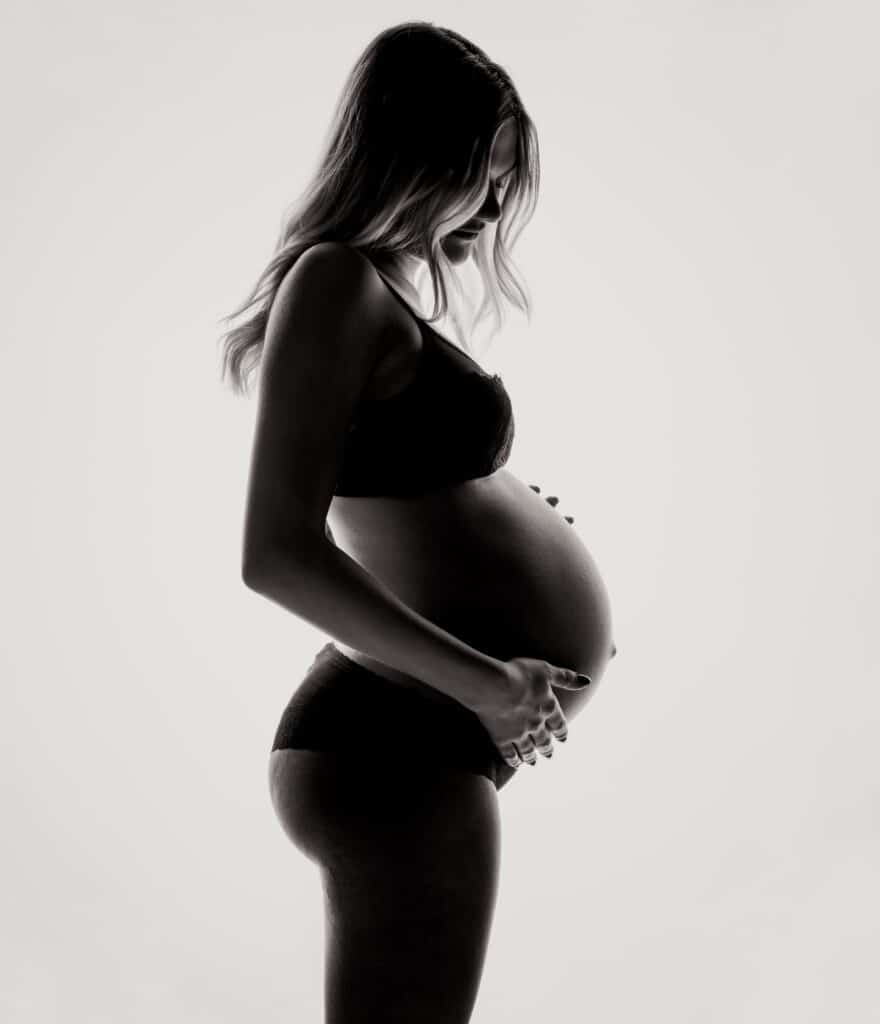Frau ALMO und der Menstruationsladen machen bis zum 15.01.2025 Urlaub. In dieser Zeit werden keine Nachrichten beantwortet. Es findet kein Versand statt.
Eine Bestellung im Online-Shop ist weiterhin möglich, aber der Versand erfolgt erst ab dem 15.01.2025.
Auch der Menstruationsladen ist geschlossen. Er ist ab dem 15.01.25 hat der Menstruationsladen wieder geöffnet.
Vor Ort in Gunzenhausen verkauft die Seekiste, Brunnenstraße 7 in 91710 Gunzenhausen eine kleine Auswahl an Stoffbinden, Slipeinlagen und Periodenslips.
Kuschlige TAGE
Stefanie
On March 12, 2020, the WHO declared the spread of the COVID-19 disease caused by the Sars-CoV-2 virus to be a pandemic. More than a year has passed since then and the pandemic has completely turned our lives upside down. But not only our everyday life has changed drastically. The COVID-19 pandemic also has particular implications for female health.
At first you might think: COVID-19, that's a lung disease, what does it have to do with women's health? But after more than a year of a pandemic, science knows that it has a great impact on the entire female body. We have compiled the changes in the cycle, pregnancy, contraception and much more for you.

The COVID-19 pandemic concerns us every day. The amount of information can lead to uncertainty and stress. It is important to pay attention to your own psychological well-being during this time. If the text provokes feelings of fear, nervousness or anger in you, we recommend not reading any further. If you are unsure, you should discuss this with your doctor.
Even after a year and a half, COVID-19 is still a young research area for science. In addition to research on COVID-19 itself, there are now numerous studies that deal with the effects of the pandemic and the measures taken. Many can not present long-term consequences due to the limited time frame. There is also always a lot of new knowledge. In this article we try to present well-documented information, but would also like to point out that research is always in flux and assessments can change.
What impact can the COVID-19 pandemic have on women's health? This question can be answered on different levels. On the one hand, it is important to answer what causes a disease with COVID-19 in the body. In addition to the typical symptoms such as fever, cough and, in severe cases, pneumonia, other organs can also be affected by the virus, e.g. the female reproductive organs. The protein to which Sars-CoV-2 binds is also found in the ovaries and uterus. This would enable the virus to bind to these organs as well. So far, however, there is no data that similar damage occurs here as on the lungs (Jing et al. 2020).
But the coronavirus does not only affect health through illness. As part of the pandemic, steps have been taken around the world to reduce the spread of the virus and save lives. As a result of these measures, everyday life has changed drastically, which has led to various effects on the female body and health.

In studies, women were asked what has changed in their lives as a result of the pandemic. Specific questions about female health were asked. The researchers found that women were using less contraceptives in the COVID-19 pandemic. At the same time, however, significantly fewer women said they wanted to have children than before the pandemic (Yuksel and Ozgor 2020). When asked about their cycle, women had more cycle symptoms on average than before the start of the pandemic (Yuksel and Ozgor 2020). In another study, over 50% of women stated that they have had more and more severe symptoms before (PMS) and during menstruation since the corona pandemic (Phelan et al. 2021).
Not only did menstrual discomfort increase, the cycle itself also changed. Many women noticed shifts and fluctuations in their cycle. It is known from previous studies that the cycle is influenced by external factors, e.g. this was also found in earthquakes (Phelan et al. 2021).

The fact that the pandemic is having the same impact on the cycle as an earthquake is a strong indication of the severity of the crisis. It is already known (and many women can certainly report this from their own experience) that phases of stress, psychological stress and a depressed mood influence menstruation. In the body, stress changes the secretion of hormones in the brain. This in turn leads to changes in the cycle hormones estrogen and progesterone and the cycle. Studies found that typical stress factors for the corona pandemic were mainly stress at work (25% of the women surveyed) and financial changes. However, up to 20% of women also stated the additional burden at home due to home schooling and childcare, conflicts with their partner or in the family and illness of family members (Phelan et al. 2021).
Home office, homeschooling, kindergarten remains closed, at the same time more time at home, more time for housework ?! The list of additional tasks, especially during the lockdown, is long. Studies have shown that women are left with more work. Many families also fall back into traditional role models and women take on more parts in childcare and the household. Job and career have to cut short, which can also have long-term consequences for a woman's career. Calculations have also shown that more women than men will lose their jobs worldwide during the pandemic.
Even before Corona, there were studies that showed that people in quarantine situations were prone to negative emotions such as anger (Chynoweth et al. 2018). Unfortunately, scientists have found that families are more likely to experience violence even during the corona pandemic. When there are young children in the house, financial worries, or mental health problems, the risk of violence increases (Steinert and Ebert 2020).
Advice and help is available, for example, from the federal government's helpline.
Singles and people in a relationship tend to envy each other in lockdown. In relationships, some may suffer from working from home together, a lack of leisure opportunities with time for themselves and few contacts outside of the relationship. Although you may be physically closer than you were before the pandemic, this does not necessarily have to have a positive effect on your sex life. Surveys have shown that around 26% of couples have sex more often, while 28% less often. However, sexual satisfaction only increased by 8% (Li et al. 2020). Another study showed that while women had more sex in the pandemic, sexual satisfaction decreased (Yuksel and Ozgor 2020).
In times of restricted contact, singles have a hard time getting to know new people. Of course, this can affect sex life. Around 40% of singles had sex less often than before the pandemic, 23% more. Both in the group of singles and those who are in a relationship, around 30% said they masturbated more than before the pandemic (Li et al. 2020).
Research knows that sex has positive effects on our immune system, mental health and mental performance. Even psychosocial stress, and this is not uncommon in Corona times, can be relieved through sex (Pennanen-Iire et al. 2021).

Other viral diseases are already known to have consequences for male fertility. For example, a fever but also orchitis, an inflammation of the testicles, affects sperm production. However, the sperm amount recovers after a few weeks (Batiha et al. 2020).
For the coronavirus Sars-CoV-2 it is interesting that the protein to which the coronavirus binds is also very common in the testicles (Gröner et al. 2021). The consequences of this for male fertility are still unclear (Batiha et al. 2020).
Pregnancy is always a time of questions and new experiences for parents-to-be. Many more questions will arise during the COVID-19 pandemic. In a study from August 2020, women who were pregnant during the pandemic, showed a significantly increased risk of developing symptoms of depression or an anxiety disorder. The researchers were also able to show that this is related to how afraid a woman was of the consequences of a corona infection or poor medical care. Social support and physical activity reduced the risk of psychological symptoms (Ayaz et al. 2020; Lebel et al. 2020).
The good news: pregnancy is not at risk of a severe course of COVID-19. The vast majority of women have only mild symptoms. Pregnant women also do not get sick more often than other people. According to the current state of science, transmission of the virus to the unborn baby is very unlikely during pregnancy. Therefore, no consequences are to be expected for the child (Klaritsch et al. 2020).

Anyone who normally has to go to the hospital is actually sick. The big exception are births. In most cases, there are healthy women and healthy children. Births should be beautiful moments that will forever be imprinted on parents' memories. The precautions and stricter rules due to the danger posed by the coronavirus also have an impact on the birth process. In the meantime, however, many hospitals have developed individual concepts to enable women to have a beautiful birth.
Even if the mother is infected with COVID-19 during childbirth, a caesarean section is not absolutely necessary. Medical aspects and the mother's wishes are decisive for the type of birth.
The most important rules for dealing with newborns remain the same. The WHO recommends that women should definitely continue to breastfeed. Even if women test positive for the coronavirus, breastfeeding can continue if the woman wants to. Skin-to-skin contact is also recommended for mothers who tested positive, albeit always with a medical mask and good hand hygiene (Klaritsch et al. 2020).
Of course, the first time with a baby is more difficult if visits and support are difficult due to local contact restrictions or if, for example, grandparents belong to the risk group.
Despite all the negative effects, there was also good news for maternal and baby health in the first lockdown in spring 2020. Various studies have shown a sharp decline in premature births. In particular, the number of very low-weight premature babies at high risk decreased significantly. A study from Denmark found a decrease of up to 91%. This development could also be observed in other countries. The researchers could not find any clear causes, but they suspect that increased hand hygiene, distance from people with cold symptoms, more relaxation for working people due to the lockdown and more time together with the family could play a role. With this knowledge, researchers are now planning to develop measures for women after the pandemic to prevent the risk of premature birth (Hedermann et al. 2021).
The COVID-19 pandemic is having very different effects on the health system around the world. In rich countries like Germany there are still enough health care workers available to maintain regular medical care. Worldwide, the supply deteriorated, in some cases significantly, as medical staff were deployed for COVID patients (Tang et al. 2020).
The recommendation from spring 2020 to postpone visits to the doctor that is not urgently necessary no longer applies. Nevertheless, the additional precautions such as tests or the submission of data make low-threshold access to medical care more difficult in Germany.
How can COVID-19 affect women's health? There are indirect consequences from the pandemic and acute symptoms during an infection. A very young field of research, however, is the long-term consequences of a corona infection. Patients suffering from the so-called Long Covid have symptoms from a coronavirus infection for more than 28 days. Many of the potential health effects are still completely unclear. Anyone looking at the latest research results will notice that new aspects are always being added. It is known that women are affected twice as often as men (Raveendran et al. 2021). The most common symptoms are permanent fatigue, insufficient resilience with shortness of breath, but also gastrointestinal complaints and fever. Women particularly often suffer from psychological symptoms such as anxiety or depression after a COVID infection (Nalbandian et al. 2021).

Job loss, home office, home schooling, lack of social contacts and hobbies; the list of stressors in the pandemic is long. Scientific data show high rates of anxiety symptoms, depression, post-traumatic stress disorder and psychological stress up to 50% of the general population (Xiong et al. 2020).
In gynecology in particular, screening and cancer screening examinations play a major role. Many types of cancer in women have a significantly better prognosis if they are detected early. Surveys among citizens, but also data from health insurance companies, have shown that women are less likely to have cancer screening than they did before the pandemic. Experts do not recommend postponing these examinations. Of course, there are some precautions to be taken, e.g. if you have cold symptoms, cancel your doctor's appointment and adhere to local policy recommendations. The practices have also established good hygiene concepts. This means that a visit to the doctor does not become a health risk, but rather helps to stay healthy.
If you google Corona, you can expect a flood of search results. But it is not always easy to find sources that are easy to understand and at the same time reliable. For many non-scientists, it is also difficult to classify the multitude of research results correctly. Here are some pages listed that can be helpful if you have any questions.
The WHO recognized early on in the pandemic the drastic effects it had on women. For this reason, she has highlighted very different aspects on her website and collected easily understandable recommendations for action and tips: https://www.who.int/
Advice on experience of violence, but also other concerns is available, for example, from the helpline: https://www.hilfetelefon.de/
There is a lot of information in easy language on the page nominated for the Grimme Prize:https://corona-leichte-sprache.de/page/6-startseite.html
The German Society for Psychology has a page that mainly deals with the psychological aspects of the pandemic, but also provides information on how to deal with the flood of information:https://psychologische-coronahilfe.de/
The independent team of journalists from correctiv.org checks corona facts:https://correctiv.org/faktencheck/hintergrund/2021/04/28/coronavirus-faktenchecks-diese-behauptungen-hat-correctiv-geprueft/
The COVID-19 pandemic hits women particularly hard on various levels. It shows that equality needs to be promoted even further. But the effects on each individual are also drastic. But science also shows that small actions can help women get through this crisis: exchanging ideas with others, talking honestly about feelings, physical activity or a hobby that is fun, support our mental and thus also our physical health.
Ayaz, R., et al. (2020), 'Anxiety and depression symptoms in the same pregnant women before and during the COVID-19 pandemic', J Perinat Med, 48 (9), 965-70.
Batiha, O., et al. (2020), 'Impact of COVID-19 and other viruses on reproductive health', Andrologia, 52 (9), e13791.
Chynoweth, Sarah K., et al. (2018), 'Implementing sexual and reproductive health care in humanitarian crises', The Lancet, 391 (10132), 1770-71.
Gröner, Matheus Ferreira, et al. (2021), 'Effects of Covid-19 on male reproductive system', International braz j urol, 47, 185-90.
Hedermann, G., et al. (2021), 'Danish premature birth rates during the COVID-19 lockdown', Arch Dis Child Fetal Neonatal Ed, 106 (1), 93-95.
Jing, Yan, et al. (2020), 'Potential influence of COVID-19/ACE2 on the female reproductive system', Molecular Human Reproduction, 26 (6), 367-73.
Klaritsch, P., Ciresa-König, A., and Pristauz-Telsnigg, G. (2020), 'COVID-19 During Pregnancy and Puerperium - A Review by the Austrian Society of Gynaecology and Obstetrics (OEGGG)', Geburtshilfe Frauenheilkd, 80 (8), 813-19.
Lebel, C., et al. (2020), 'Elevated depression and anxiety symptoms among pregnant individuals during the COVID-19 pandemic', J Affect Disord, 277, 5-13.
Li, G., et al. (2020), 'Impact of the COVID-19 Pandemic on Partner Relationships and Sexual and Reproductive Health: Cross-Sectional, Online Survey Study', J Med Internet Res, 22 (8), e20961.
Nalbandian, A., et al. (2021), 'Post-acute COVID-19 syndrome', Nat Med, 27 (4), 601-15.
Pennanen-Iire, C., et al. (2021), 'Sexual Health Implications of COVID-19 Pandemic', Sex Med Rev, 9 (1), 3-14.
Phelan, N., Behan, L. A., and Owens, L. (2021), 'The Impact of the COVID-19 Pandemic on Women's Reproductive Health', Front Endocrinol (Lausanne), 12, 642755.
Raveendran, A. V., Jayadevan, R., and Sashidharan, S. (2021), 'Long COVID: An overview', Diabetes Metab Syndr, 15 (3), 869-75.
Steinert, Janina and Ebert, Cara (2020), 'Gewalt an Frauen und Kindern in Deutschland während COVID-19-bedingten Ausgangsbeschränkungen: Zusammenfassung der Ergebnisse', Verfügbar unter: https://drive. google. com/file/d/19Wqpby9nwMNjdgO4_FCqqlfYyLJmBn7y/view.
Tang, K., et al. (2020), 'Sexual and reproductive health (SRH): a key issue in the emergency response to the coronavirus disease (COVID- 19) outbreak', Reprod Health, 17 (1), 59.
Xiong, Jiaqi, et al. (2020), 'Impact of COVID-19 pandemic on mental health in the general population: A systematic review', Journal of Affective Disorders, 277, 55-64.
Yuksel, B. and Ozgor, F. (2020), 'Effect of the COVID-19 pandemic on female sexual behavior', Int J Gynaecol Obstet, 150 (1), 98-102.
Cloth sanitary napkins are on the rise, because more and more women are looking for alternative monthly hygiene and products that are sustainable and protect the environment and their wallets equally. Moreover, the purchase of such monthly products is firmly linked to certain shopping habits in our mind. So it makes perfect sense to buy sanitary towels, tampons and other menstrual hygiene items in a drugstore. But so far there are no cloth sanitary towels there. However, that does not have to mean that it will stay that way.
Because drugstores, like the German "DM" in particular, are mostly known for making a lot of progress in terms of sustainability about their offered products as they are listening to their community on the Internet. So it can be quite useful not only to inquire by the local market but also to activate other women and to bring up the topic on Facebook or Instagram. Because the thing is actually quite simple: if there is a demand, one or the other drugstore will consider whether the product range should not be expanded to include cloth sanitary towels.

Washable sanitary towels
Washable sanitary towels used perfectly normal, but now you have to look for them like a needle in a haystack. An alternative to the drugstore shelf are selling points like unpackaged shops, of which there are more and more, organic shops but also practices of gynecologists, alternative practitioners and midwives or also shops which offer cloth diapers. You can find an ever-expanding list of providers that carry washable sanitary towels or cloth sanitary towels from ALMO here. There you will also find many events where you can learn more about alternative menstrual hygiene and cloth sanitary towels. Fabric sanitary towels you can touch, so to speak, because many women have prejudices and can not really imagine how a fabric sanitary napkin works in everyday life, how it can be stored in a used condition and much more.
It will probably take some time before there will be washable sanitary napkins in the range of drugstores. However, since fabric sanitary napkins have a long lifespan and it is not necessary to buy fabric sanitary towels at the drugstore every month, as you have been used to, there is nothing to prevent you from ordering them online. In the ALMO shop you get fabric sanitary towels that have been tried and tested and will exceed your expectations. As you are used to from conventional sanitary towels, the fabric sanitary towels have an absorbent core and wings that you can use to attach them to your panties. The wings are simply wrapped around your panties and buttoned at the bottom.
What will surprise you is the cozy feeling in the pants, because a plastic bandage can not achieve that.
Every single form of monthly hygiene has its advantages and disadvantages, depending on whether the safest possible leakage protection, sustainability and environmental compatibility, costs or the simplest possible handling with pleasant wearing comfort are in the foreground. No product fulfills all the points 100%, but alternative monthly hygiene products take the lead, especially because of their sustainability and cost savings.

Disposable pads & tampons
They are the classics on the drugstore shelf and are therefore the standard products that women have to deal with particurarly frequently during their menstrual cycles.
Leak protection & hygiene:
Sanitary towels are usually available with and without wings, sometimes in longer, narrower or tailored versions. They should be changed regularly, on heavy to normal days at least 5-6 times in 24 hours. Tampons should be changed at least every six hours (TSS syndrome).
Sustainability & environmental protection:
Conventional disposable sanitary towels and tampons are usually packaged in plastic and also contain plastic (phthalates, also known as softeners). Superabsorbents and gel cores ensure that as much menstrual blood as possible is absorbed and that the wearer feels pleasantly dry. The natural components such as cotton are partially bleached, which creates dioxins. In addition, artificial fragrances are added to convey a special feeling of freshness.
There is currently no legal obligation to label these additives and their components. The decomposition of the disposable sanitary napkins and also the tampons needs several centuries in the case of conventional products. After all, organic products decompose in shorter periods of time.
Health:
Cotton is used in both sanitary towels and tampons and, like many other products for daily consumption, is treated with pesticides, especially glyphosate. It should be clear to everyone that this is not good for the sensitive mucous membranes of the vagina in the long term. But in the case of tampons, for example, whether treated or untreated does not matter. These are mainly bought according to one criterion: they should be absorbent. This in turn can let the mucous membrane drying out. The result is frequent fungal infections. Anyone who frequently suffers from itching, burning and discharge in the intimate area should consistently wear cotton underwear for 2-3 months, avoid plastic tampons and sanitary towels and, above all, avoid fragrances in them - this also applies to the washing detergent.
Purchase & costs:
The standard range is now available in every supermarket, gas station, kiosk, sometimes in toilets and of course in drugstores. Organic products are not always available everywhere. Possible sources of supply for low-pollutant tampons and disposable sanitary towels are partly drugstores, partly organic shops and online shops. Accordingly, conventional sanitary towels and tampons are comparatively cheap, their organic counterparts a little more expensive. However, the costs add up, per woman and cycle, several thousands of euros are spent in life just for monthly hygiene. This does not include ruined underwear sets because the promised leakage protection of the menstrual pad did not keep what it promised.
Handling & wearing comfort:
The adhesive tape in the sanitary napkins holds more or less well, depending on the product - i. H. sometimes the disposable pads puffs up in the panties and interferes with walking, running or sitting. While sanitary towels are perceived as unhygienic even by some women, packaging and disposal are usually not a problem - you roll them up and throw them in the trash. Goodbye used sanitary napkins!

Alternative monthly hygiene. Around half of the world's population has it, has had it or will have it in the future:
The menstrual bleeding.
Although billions of women worldwide share this aspect of their femininity, the knowledge of monthly hygiene is rather hidden. Disposable products such as sanitary napkins and tampons can be found as examples in advertising and educational classes at school. Alternatives are rarely mentioned. There is a lot to know when those special "days" happen in a woman's life!

The menstrual period: so individual lieke everyone of us.
Every menstrual cycle is unique. Every woman experiences it differently, every menstruation is different, from woman to woman from month to month. It can be short and intense or weak and lasting for many days. The strength of the menstrual period literally ties some women to the bed, while other women are doing sports at the highest level or give inspiring speeches. In some countries in Asia such as Japan, Indonesia or South Korea women have the right to take paid vacation during their period – to rest at home.
Because the menstrual cycle is so different from woman to woman, the products for monthly hygiene should be also different for each woman. On the typical drugstore shelf there are therefore pads and tampons for heavy or light bleeding, with and without leakage protection. Panty liners are mostly used during the weakest days of the cycle. So far so good – but isn't there more? Oh yes!
Monthly hygiene:cloth pads, tampons,cups & sponges
The good news first: if a woman searches long enough, she will find the right monthly hygiene for herself. And the search itself is worthwhile, because we use a big number of products during our life with the female cycle. The calculation is comparatively simple:
Monthly hygiene products in Germany were charged at 19 percent, i.e. the higher VAT rate. They were considered a "luxury good". In the course of her life a woman spends around € 2,000 to € 4,800 only for her menstrual cycle days.
| Costs in life | Garbage produced | |
| Disposable sanitary napkins | ~2.000 € - 4.800 € | 12.000 – 16.000 pads |
| Reusable sanitary napkins | ~ 400 -1000 Euro | 30-75 pads |
| tampons | ~2.000 € - 4.800 € | 12.000 – 16.000 tampons |
| Menstrual cup / sponge |
~ 15 € - 45 € (cup) ~ 200 € - 400 € (sponge) | ~ 1-3 cups ~ 160 sponges |

Alternative monthly hygiene is cheaper
alternative Monthly hygiene is therefore worth a second look for several reasons.
A sponge can be used from months to 1-2 years and costs between 4 and 6 euros. A menstrual cup has a lifespan of up to 10 years, the same applies to cloth sanitary towels. Thus the costs are just as lower as the garbage that is produced.
Every single form of monthly hygiene has its advantages and disadvantages, depending on whether the safest possible leakage protection, sustainability and environmental compatibility, costs or the simplest possible handling with pleasant wearing comfort are in the foreground. Cheapness is an issue that comes into play when we talk about alternative monthly hygiene. In the next blog post we will look at the health aspects and advertising promises of conventional monthly hygiene products.
You can find many Questions & Answers in our Frequently Asked Questions (FAQ).
Unsure about the right size? See our size chart!
Click one of the items below to get started.